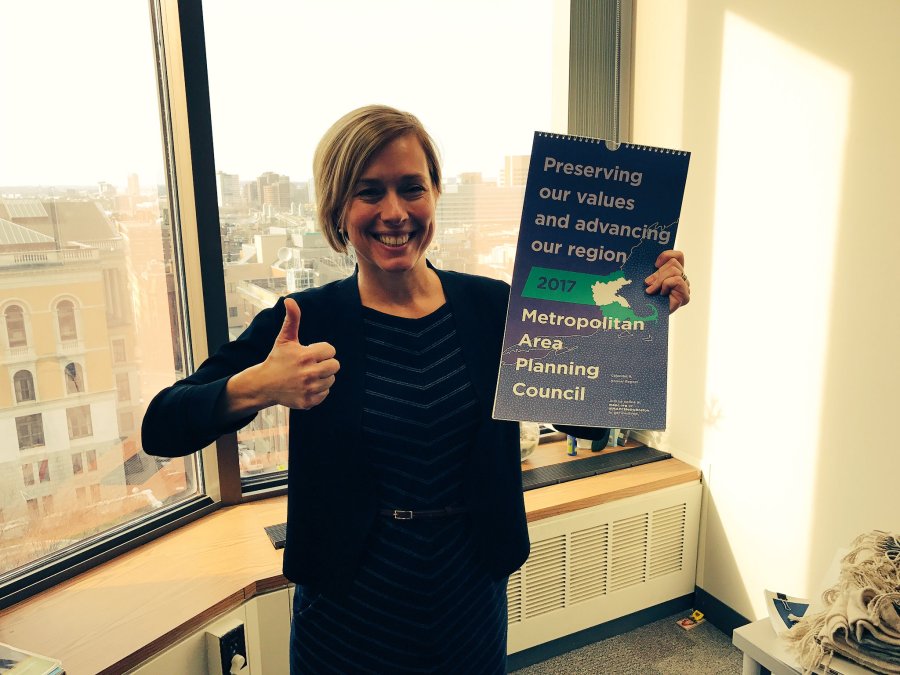Massachusetts’ first chief digital and data officer steps down

Massachusetts’ first chief digital and data officer, Holly St. Clair, stepped down on Friday to take a position at a private architecture firm, she confirmed to StateScoop.
St. Clair was with the state for more than four years and served as the state’s chief digital and data officer since 2016. She led the Massachusetts Digital Service, an office that uses technology to “make digital interactions with government fast, easy and wicked awesome,” according to the office’s Twitter bio. She will join Sasaki, an architecture and urban development firm based in Watertown, Massachusetts.
“I’m really interested to work with them about how to use data and technology to improve place,” St. Clair told StateScoop in a phone interview.
The new role is St. Clair’s first in the private sector, extending a career that also included 13 years on the Metropolitan Area Planning Council, where she served the greater Boston region, advocating for smart design.
At a conference last year she noted that her state provides about 250,000 pages of documents online, but that the public only regularly accesses 10 percent of those, which means most of the content the state was providing was obscuring the things people actually wanted to see. Realizations like these, which informed the redesign of the state’s website, Mass.gov, have been hallmarks of her public-sector tenure.
St. Clair said the state’s website redesign and the work in promoting data-sharing across various agencies were among her office’s top achievements during her tenure. The data-sharing was possible through data-license agreements and a data-sharing memorandum of understanding that streamlined the usual legal hurdles needed for agencies to release their data, she said.
St. Clair was also instrumental in launching the state’s Chapter 55 Opioid Epidemic website, which shares with the public visualizations of a report last updated in August 2017 tallying the deaths and other casualties linked to the state’s heightened trend of opioid addiction. The research led by the Massachusetts Department of Public Health used 10 data sets, bridging the work of 29 government bodies, to contextualize a public health issue whose death rate has quadrupled since 2000.
That work, she said, ensured “it wasn’t just a report that sat on the shelf,” but gave links to additional resources where people could get help and also provided everyone common ground for understanding the problem.
In past interviews with StateScoop, St. Clair emphasized the importance of designing digital experiences that center around the user — minimizing the number of clicks needed to find a given piece of information and continually restructuring the way data is presented to ensure users have the easiest experience possible.
“It’s not like we build a website and say ‘Oh, that’s done, glad we don’t have to do that for another six years,’” St. Clair told StateScoop. “It’s an ongoing product.”
She reiterated this idea to StateScoop on Monday, saying that whoever replaces her will likely be tasked with improving the “transactional” applications that the state offers the public, such as those for unemployment benefits.
“The park permitting application and associated licenses with that is something we’re getting ready to partner with Fish and Wildlife and think about what the next generation of that would be,” she said.
The state also needs to think more broadly about its strategy when it comes to APIs, she said, the tools that developers can use to tap the state’s data resources in their own applications.
“That’s some uncharted territory we’ll probably get to later this year,” St. Clair said.
St. Clair said she wasn’t aware of a replacement lined up yet, but that her team in the Executive Office of Technology Services will carry on her work. Whether the role is filled again or divided up between other personnel, St. Clair said it’s a unique and critical function for government.
“This is probably one of the only positions in state government … that is looking at improving constituent experience and helping our agencies understand that as well,” she said.






